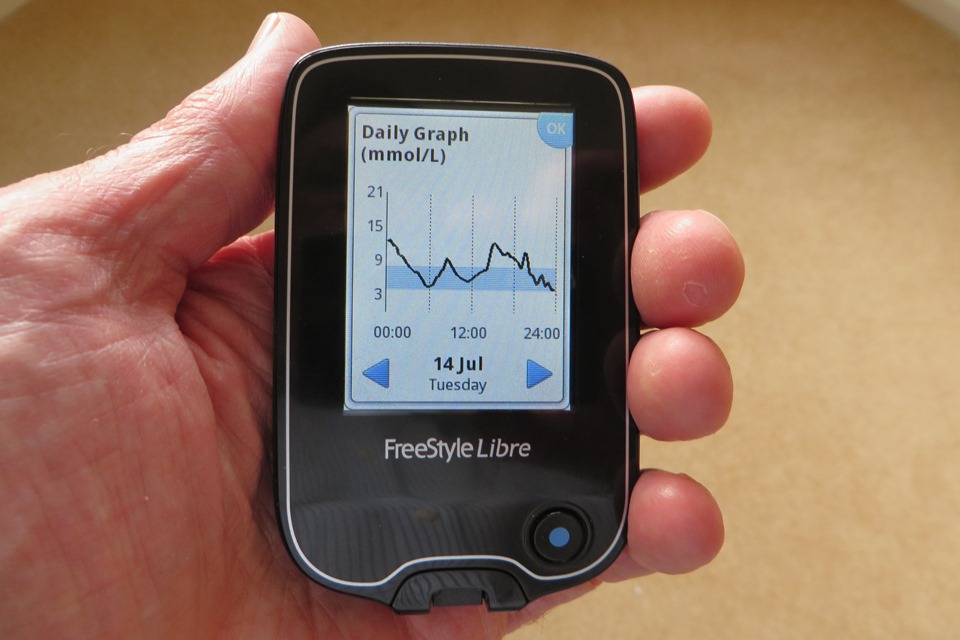I’ve had Type One Diabetes for most of my life. As I’ve stated earlier here, one of the biggest things I’ve discovered to help people with diabetes is the Freestyle Libre glucose monitor. So I was delighted to hear last year that this item could be available on prescription from the 1st November 2017.
I contacted my GP to arrange getting this on prescription. He suggested I speak to a nurse who specialises in diabetes. She said I should speak to a doctor in the New Year, as a decision (I think by the clinical commissioning group in Cheshire) hasn’t been made. I’m still waiting to get this on prescription…
So why is this important? The reader cost me nearly £50, but it’s the sensors that cost me about £3.80 a day that are the real issue. Since these devices became available to me, in the summer of 2015, I’ve spent nearly £4,000 on them. As my salary is around the living wage, this is quite a significant cost.
Why do I spend all this money, and why should I expect the NHS to buy this for me? The consequences of badly controlled diabetes are horrendous. A significant proportion of the NHS budget for England and Wales is already spent on diabetes. This site estimated that the cost in 2012 was £14 billion pounds a year, or over £25,000 being spent on diabetes every minute!
As a person with diabetes, if I don’t control the disease, I am more at risk of complications. For instance, I am potentially more at risk of having kidney failure. The average cost of dialysis is £30,800 per patient per year. I am potentially more at risk of heart disease. Cardiovascular disease is estimated cost the UK economy (including premature death, disability and informal costs) £19 billion each year. I am more at risk of many other serious complications, like needing amputations and going blind.
If my blood sugars go too low I can quickly go into a coma, potentially requiring an ambulance. If my blood sugars are too high, I can also go into a different sort of coma, and I’d be wrecking my own body. Since using these monitors, I now have a much better idea of what different foods are doing to my blood sugars. I now have 24 hours a day surveillance of my blood sugars, and know whether they are going up or down, and can hopefully avoid problems.
The total cost of diabetes to the country is far higher than what I’ve hinted above – when other costs, like absenteeism, early retirement and social benefits, are added. So I regard the cost of these sensors is a small price for the NHS to pay to try and avoid far more expensive complications. Far more is spent on dealing with the complications than treating the disease – so I consider not making these devices available on prescription is penny wise, but pounds foolish.
I note that Theresa May, who also has diabetes, uses this device. This site suggests her salary is over £150,000, but that’s only a tiny fraction of the total perks she gets. So I suspect the cost of another sensor for Theresa May is probably not a major consideration for her, whilst others go without completely….

















